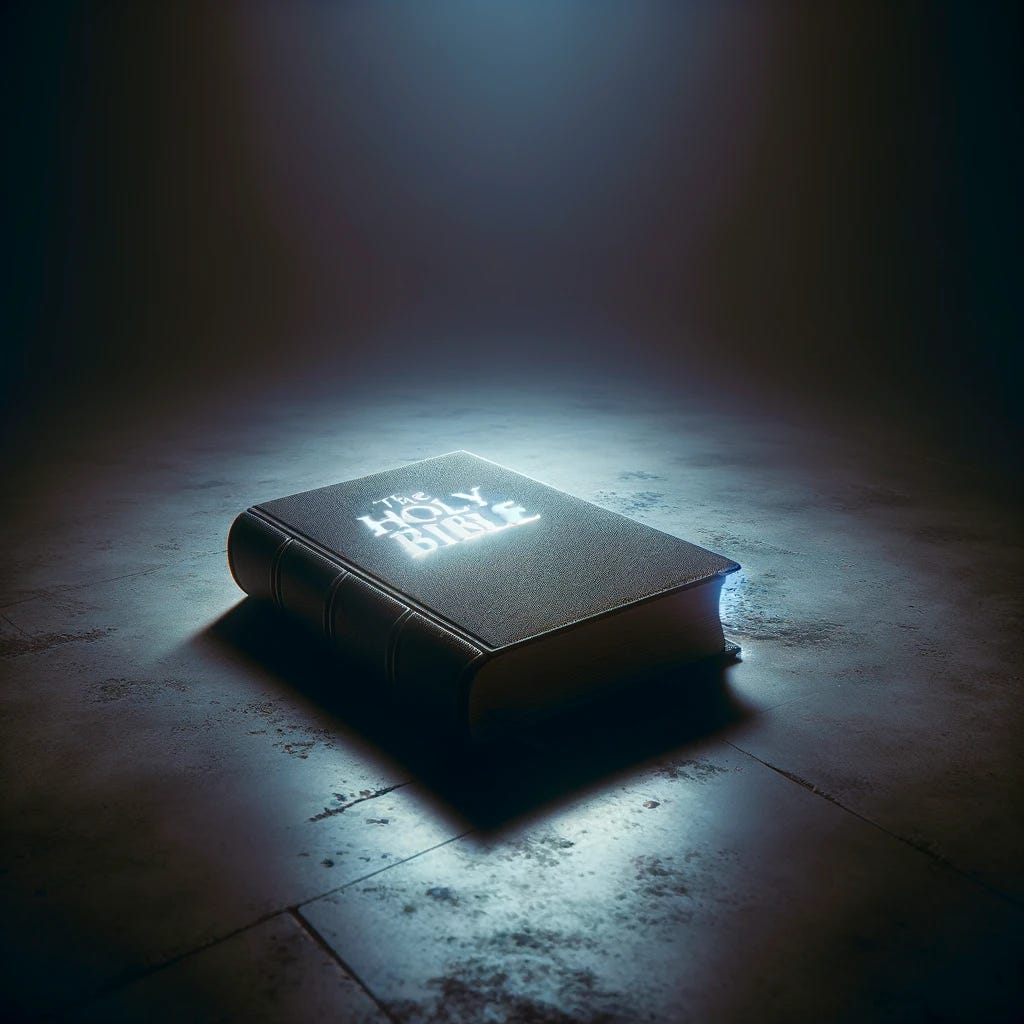Here’s a story to set the stage for today’s post on The Tolton Path:
The start of Faith’s day was just as it ended, in darkness. Still, she immediately caught a glimpse of the rectangular object on the floor. The shadowy shape would be hard to make out from her bed if not for the fact that it was the first time anything else was in the room.
Faith walked through the door once it slid open. And as usual, a container waited for her. It was the same breakfast she had her entire life.
A dim light came on as she sipped her breakfast through a straw, waiting proudly to please the voice.
And as usual, the voice began. “Today is going to be a wonderful day,” said the female voice. It was the only voice she ever heard with the exception of her own voice–when she was told to speak, of course.
“Repeat,” said the voice.
Faith sat up in her chair and looked ahead. “Today is going to be a wonderful day.” Faith smiled.
“Very good!” The voice said. Faith’s smile grew.
“Today is your birthday, Faith.” What luck, she thought! She counted in her head and ended on ten. She remembered the special meal from her ninth birthday and grew excited. Some of it was crunchy and other parts, chewy. Her mouth was sore the next day.
“Faith, recite for me our words.”
“There is no pain, there is no fear as long as the voice is here.” Faith sat up, pleased with herself. She hadn’t spoken in months.
The door to her bedroom slid open.
“Go inside for your present,” the voice said.
She walked into her darkened room once again. What would it be this year? She had something warm to eat once before and was hoping for that again. Her mouth watered.
“Do you remember how to read?” the voice asked.
Faith said, “It’s another source of words.” Though she knew the voice was the endless source of words, Faith was taught the letters that formed those words, how those words formed sentences, which in turn formed paragraphs. Faith was excited to learn more about the voice’s words.
The shadowy rectangular shape she saw earlier on the floor began to glow.
“This is a book,” the voice said. “There are many words inside. Read the words to me as a test.”
Faith approached the book and read the words on the cover. “The Ho-ly Bi-ble,” she sounded out.
–End story (for now)–
Human Knowledge in Your Pocket
Humanity has progressed over thousands of years through the transfer of knowledge and information. Cave drawings allowed historical accounts to be saved. Stories were told verbally from person to person (not the most accurate way, but the only way at the time). Written languages followed. How those were stored evolved from cave walls to scrolls and books.
Innovation continued, allowing our information to be stored as audio and video recordings. The digitization of knowledge exploded with the advent of the consumer facing internet in the 1990s. With the announcements of OpenAI this week, the entirety of our knowledge is available by simply asking for it through its ChatGPT 4o artificial intelligence. I’m using it right now by leaving the app open on my phone and simply speaking with it (hands free) as if it was a (super smart) person. Not to be outdone, Google demoed similarly profound updates to its Gemini artificial intelligence as well.
As uses cases of the new AI continue to come out along with your own inevitable experiences with it, you will understand the profound implications on our personal and professional lives.
And human knowledge and information continues growing, feeding these AI systems. In this digital age, we are well past the written word. Google has 6 billion images uploaded to Google Photos each day. Images that artificial intelligence can now interpret and understand in real time.
But who decides how artificial intelligence interprets this information? And who decides how to use that knowledge, when to share it and who to share it with (or not)?
When artificial intelligence is at the ready for any question and task, how many people are going to be willing to find a physical book to verify what they are being told?
The bigger question is, who decides what is right or wrong? Who determines the truth? Answer, comment or ask questions below. And hang onto your physical books, just in case.
Peace.




